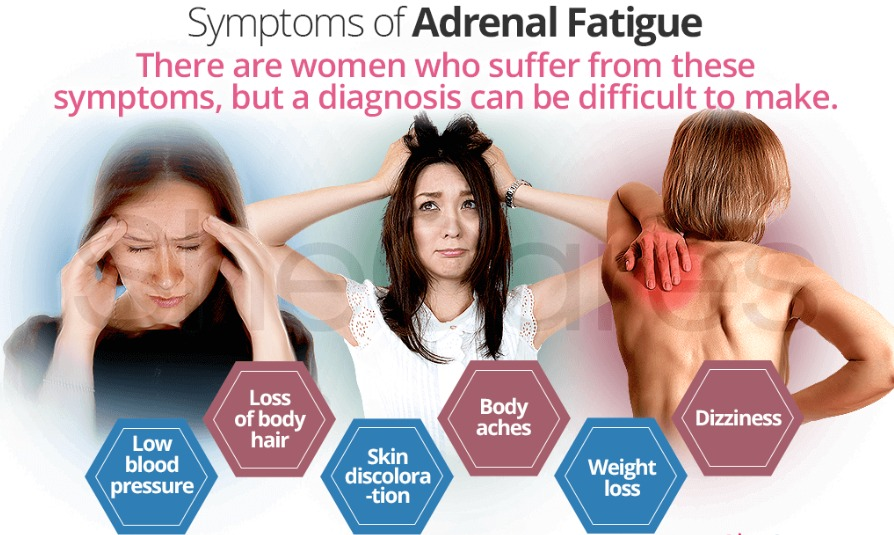Adrenal fatigue is a term often used to describe a collection of symptoms, such as chronic tiredness, body aches, and difficulty coping with stress, which are believed to be caused by the adrenal glands not functioning properly. The adrenal glands produce hormones like cortisol, which help the body respond to stress.
Proponents of the adrenal fatigue theory suggest that prolonged stress leads to the overuse and eventual exhaustion of the adrenal glands, resulting in a suboptimal hormonal response.
However, adrenal fatigue is not recognized as an official medical diagnosis. Most medical professionals, including endocrinologists, view it as a myth, as there is little scientific evidence supporting the idea that stress can cause the adrenal glands to become “fatigued.”
Conditions such as adrenal insufficiency (e.g., Addison’s disease), where the adrenal glands cannot produce adequate amounts of certain hormones, are well-established but different from the concept of adrenal fatigue.
People experiencing symptoms often associated with adrenal fatigue may actually be suffering from other conditions, such as sleep disorders, depression, anxiety, or thyroid dysfunction, which should be evaluated by a healthcare professional.
What causes it?
While adrenal fatigue is not recognized as a legitimate medical diagnosis by most healthcare professionals, those who believe in the concept suggest that it is caused by prolonged or chronic stress. They claim that the adrenal glands, which produce stress hormones like cortisol, become overworked from constantly having to respond to stress, eventually leading to a state of exhaustion.
Here are some proposed causes of adrenal fatigue according to this theory:
Chronic Stress: Emotional, mental, or physical stressors, such as work pressure, relationship issues, financial problems, or trauma, can supposedly cause the adrenal glands to constantly produce cortisol, leading to their exhaustion over time.
Poor Lifestyle Choices: Lack of sleep, poor nutrition, excessive caffeine or sugar intake, and insufficient exercise are said to contribute to the imbalance of hormones and strain the adrenal glands.
Infection or Illness: Some proponents suggest that chronic infections, like the flu or respiratory infections, as well as long-term health conditions, might contribute to the depletion of adrenal function.
Overuse of Stimulants: High caffeine or stimulant use is thought to push the adrenal glands to release more cortisol, eventually leading to “burnout.”
That said, the medical community emphasizes that the symptoms attributed to adrenal fatigue—such as fatigue, brain fog, and low energy—are likely linked to other medical conditions, such as thyroid issues, sleep apnea, depression, or anxiety. For true adrenal problems, like adrenal insufficiency (e.g., Addison’s disease), the cause is often damage to the adrenal glands due to autoimmune conditions, infections, or other systemic diseases.
If someone is experiencing symptoms associated with adrenal fatigue, it’s recommended to seek advice from a healthcare provider for proper diagnosis and treatment.

